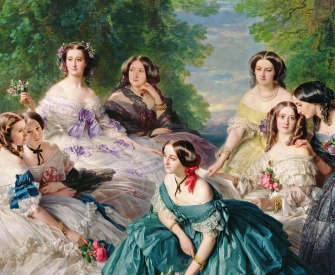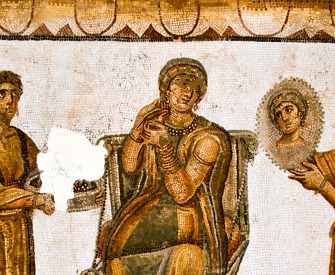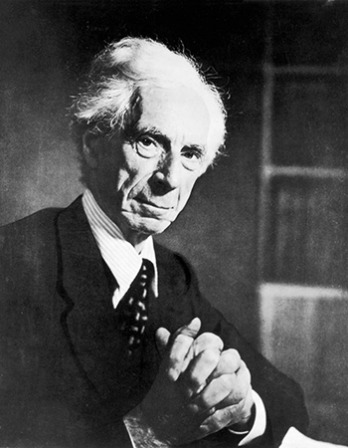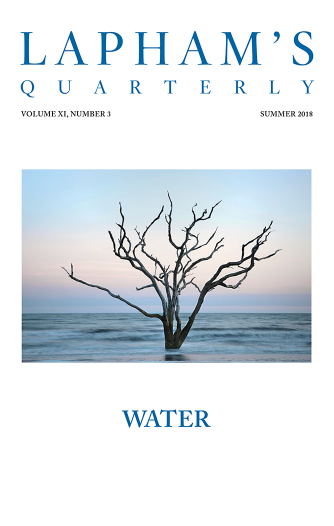Women consume economic goods. What economic product do they give in exchange for what they consume?
The claim that marriage is a partnership in which the two persons married produce wealth which neither of them separately could produce will not bear examination. A man happy and comfortable can produce more than one unhappy and uncomfortable, but this is as true of a father or a son as of a husband. To take from a man any of the conditions which make him happy and strong is to cripple his industry, generally speaking. But those relatives who make him happy are not therefore his business partners and entitled to share his income.
Grateful return for happiness conferred is not the method of exchange in a partnership. The comfort a man takes with his wife is not in the nature of a business partnership, nor are her frugality and industry. A housekeeper, in her place, might be as frugal, as industrious, but would not therefore be a partner. Man and wife are partners truly in their mutual obligation to their children—their common love, duty, and service. But a manufacturer who marries, or a doctor, or a lawyer, does not take a partner in his business when he takes a partner in parenthood, unless his wife is also a manufacturer, a doctor, or a lawyer. In his business she cannot even advise wisely without training and experience. To love her husband, the composer, does not enable her to compose; and the loss of a man’s wife, though it may break his heart, does not cripple his business, unless his mind is affected by grief. She is in no sense a business partner, unless she contributes capital or experience or labor, as a man would in like relation. Most men would hesitate very seriously before entering a business partnership with any woman, wife or not.
If the wife is not, then, truly a business partner, in what way does she earn from her husband the food, clothing, and shelter she receives at his hands? By house service, it will be instantly replied. This is the general misty idea upon the subject—that women earn all they get, and more, by house service. Here we come to a very practical and definite economic ground. Although not producers of wealth, women serve in the final processes of preparation and distribution. Their labor in the household has a genuine economic value.
For a certain percentage of persons to serve other persons in order that the ones so served may produce more is a contribution not to be overlooked. The labor of women in the house, certainly, enables men to produce more wealth than they otherwise could; and in this way women are economic factors in society. But so are horses. The labor of horses enables men to produce more wealth than they otherwise could. The horse is an economic factor in society. But the horse is not economically independent, nor is the woman. If a man plus a valet can perform more useful service than he could minus a valet, then the valet is performing useful service. But if the valet is the property of the man, is obliged to perform this service, and is not paid for it, he is not economically independent.
The labor which the wife performs in the household is given as part of her functional duty, not as employment. The wife of the poor man, who works hard in a small house, doing all the work for the family, or the wife of the rich man, who wisely and gracefully manages a large house and administers its functions, each is entitled to fair pay for services rendered.
To take this ground and hold it honestly, wives, as earners through domestic service, are entitled to the wages of cooks, housemaids, nursemaids, seamstresses, or housekeepers, and to no more. This would of course reduce the spending money of the wives of the rich and put it out of the power of the poor man to “support” a wife at all, unless indeed the poor man faced the situation fully, paid his wife her wages as house servant, and then she and he combined their funds in the support of their children. He would be keeping a servant: she would be helping keep the family. But nowhere on earth would there be “a rich woman” by these means. Even the highest class of private housekeeper, useful as her services are, does not accumulate a fortune. She does not buy diamonds and sables and keep a carriage. Things like these are not earned by house service.
But the salient fact in this discussion is that, whatever the economic value of the domestic industry of women is, they do not get it. The women who do the most work get the least money, and the women who have the most money do the least work. Their labor is neither given nor taken as a factor in economic exchange.
From Women and Economics. The feminist and socialist escaped to Pasadena, California, in 1888 with her young daughter—but not her husband—after a brief stay in a Philadelphia sanatorium, an experience that shaped her short story “The Yellow Wallpaper.” She later carved out more time for her career as a writer and lecturer by sending her daughter to live with her ex-husband, which the press covered as a scandal. Gilman committed suicide in 1935, writing in her widely published note that she “preferred chloroform to cancer.”
Back to Issue





